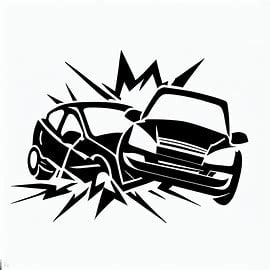From the article:
The man is blaming the automaker even though the manual door opener was under his left hand the whole time.
A man in Arizona says that he was recently trapped in his Tesla after getting in, closing the door, and then realizing that his battery was dead. What he didn’t know is that the manual release for the door was under his left hand the whole time. Now, he’s blaming the automaker and raising awareness.
Rick Meggison, 73, says that Tesla needs to address what he calls a “safety concern” involving how to exit the car when the battery dies. The main door latch actuator on all Tesla models is electronic so if the 12-volt battery dies it won’t work. To ensure safe exit of the vehicle Tesla includes a manual release. Meggison didn’t know about that and ended up trapped in his car for 20 minutes on a hot day.
“I couldn’t open the doors. I couldn’t lower the windows. The computer was dead, so I couldn’t open the glove box. I couldn’t open anything,” he told ABC7. Of course, he could’ve opened the door in about two seconds had he known that the manual release was just ahead of his window switches. His situation has many wondering who’s to blame in situations like this.



So, it might just be aesthetics then?
It’s definitely not just aesthetics, but the impact is up for debate. Tesla aren’t the only EV manufacturer doing it.
If there is no data, how do you know it ISN’T just for aesthetics? It certainly seems that way.
Well, I did some googling and found this:
Source: https://www.businesswire.com/news/home/20180105005468/en/Top-3-Drivers-of-the-Global-Automotive-Retractable-Door-Handle-System-Market-Technavio
Seems like there is indeed plenty of data.
The impact on drag at normal highway speeds is negligible, there is no debate. It is entirely for cool factor points. Nothing accomplished by retractable handles couldn’t be done better, cheaper, and with fewer moving parts with a standard handle.
errr, yeah there is debate. Given that nearly every EV manufacturer is doing their darnedest to flatten or remove door handles, don’t you think there must be more than a “negligible” impact?
https://www.businesswire.com/news/home/20180105005468/en/Top-3-Drivers-of-the-Global-Automotive-Retractable-Door-Handle-System-Market-Technavio